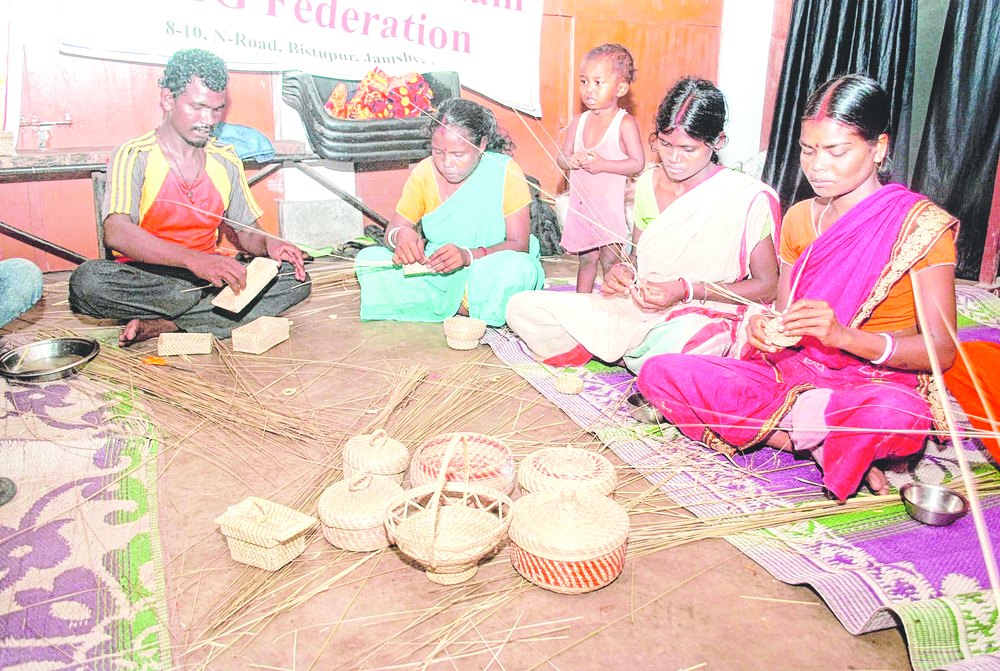
A motorbike was nothing short of an intimidating animal and foods like dal , bhaat were unknown to the Sabar community of Kharsawan.
Till recently, people of this primitive tribal group remained in the hinterland of Nimdih block, around 45km away from the steel city, and earned living through forest produces. Finally, it was brooms made of kasi grass that swept a section of urban people off their feet and heralded a new beginning for this long forgotten community.
Kalamandir Celluloid Chapter Art Foundation - a city-based outfit that works with tribals - identified the craftsmanship displayed in these brooms and opened a new window for the people of Sabar community in March.
The outfit provided them months-long training, took their products, mainly made of kasi grass, to market and ensured a sustained source of livelihood. It also groomed them so that they could come out of their closed world and explore new opportunities in cities like Jamshedpur.
After three months, the Sabar women now know how to wear saris and men are comfortable in jeans and T-shirts.
On the occasion of its 18th foundation day, Kalamandir felicitated 12 sabar craftsmen at a function in the city on Monday for successfully attending a 10-day skill development workshop.
The 12 people are part of about 40 who have been learning techniques to make fruit baskets, brooms, jewellery boxes and coasters from kasi grass.
Master trainer Binod Bihari Manna said they wanted to help them make consumable items rather than decorative products. "Initially, they were not interested. But I started visiting them, sharing their happiness and sorrows and finally, they agreed to take part in the training. These people now earn a stipend of Rs 60 for three hours," he added.
However, the biggest achievement, Manna said, was that they had left hadia, a local rice beer. "We have taught them how to behave in public. These people, who used to eat boiled fruits from the jungle, are now more fond of bhaat, dal and torkari," said Manna.
They have already come a long way and are now looking forward to a bright future. "We want electricity and a school in our village," said Arun Sabar, summing up the sentiment of the community.










